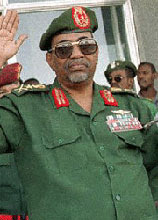
When writing this post, my first thought was Saturday's brutal terror attacks in the Indian city of Ahmadabad, but this can apply to all settings and religious backgrounds. The followers of a religion must do more than simply reject the use of extremism in the name of their faith. In addition to speaking out against the use of violence, they must stand beside different religions, especially when extremists seek to create tension between said religions, often by simply killing as many people as they can, holding their breath, and hoping it will create mayhem and panic. We've seen it in Iraq many times...what appeared to be nothing but a country descending into chaos and civil war was initiated by Al-Qaeda's specific targeting of religious institutions and provoked a conflict that has shaped the political world in a way never imagined.
 With things taking a turn for the better in Iraq, it looks like a another target has emerged...central and south Asia. In India and Pakistan, the continued use of terrorism has done considerable damage to the people of these countries, and has wrecked havoc in marketplaces, bus stations, cafes, and other public places. India is one of the most populous countries in the world, with one of the largest GDP's in the world and a formidable military power. Yet somehow, a rag-tag band of so-called Islamic fundamentalist can bring the country to its knees and create shock waves of panic across the nation of more than one billion. By strapping dozens of crudely made explosive devices to bicycles and bins and blowing up as many people as possible, fear is everywhere. In a country like India, where many cities are overcrowded with millions of people, the attackers can fall back into the shadows, leaving the population afraid and vulnerable.
With things taking a turn for the better in Iraq, it looks like a another target has emerged...central and south Asia. In India and Pakistan, the continued use of terrorism has done considerable damage to the people of these countries, and has wrecked havoc in marketplaces, bus stations, cafes, and other public places. India is one of the most populous countries in the world, with one of the largest GDP's in the world and a formidable military power. Yet somehow, a rag-tag band of so-called Islamic fundamentalist can bring the country to its knees and create shock waves of panic across the nation of more than one billion. By strapping dozens of crudely made explosive devices to bicycles and bins and blowing up as many people as possible, fear is everywhere. In a country like India, where many cities are overcrowded with millions of people, the attackers can fall back into the shadows, leaving the population afraid and vulnerable.The sick people who carry out these attacks are hardly Muslim at all (I know, I make this point on my blog almost weekly). The attacks happening in India and Pakistan are designed to create as much tension and animosity between rival religious groups (Hindus and Muslims) and rival political parties (AQ and the Taliban's targeting of Benazir Bhutto, Musharraf, and their supporters). Sometimes they succeed, as they managed to do in Iraq for sometime, until the Iraqi people finally stood up and said "Enough!", and other times they stand in solidarity, as they have managed to do in India's religiously diverse communities. Despite dozens of attacks, including Saturday's bomb blasts, there has yet to be large-scale violence against the Hindu and Muslim population. This is the good news, and the fact that their barbaric form of "resistance" has failed to do what's intended must hit back at the forces of terrorism.
Photos from CNN/AP














